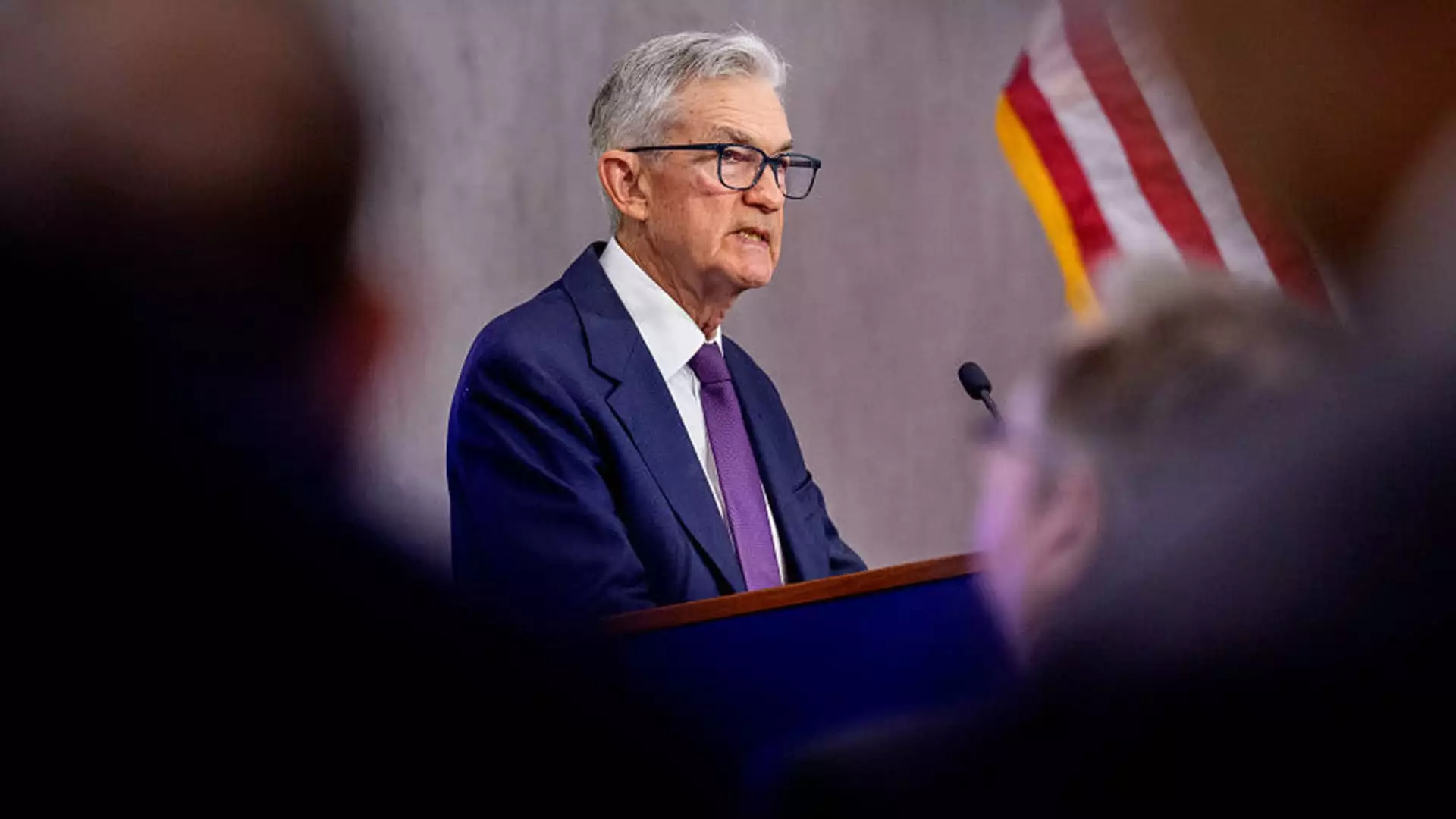In a striking display of impatience and misunderstanding, former President Donald Trump took to Truth Social to criticize Federal Reserve Chairman Jerome Powell for maintaining interest rates amidst troubling employment data. Trump’s brash impulsiveness suggests that he believes a simple reduction in rates could magically rejuvenate the economy, despite the complex realities of monetary policy. The recent ADP report, revealing a meager increase of just 37,000 private sector jobs in May, further intensified Trump’s impulse to blame the Fed for the economic woes he perceives. What went unseen in this emotional outburst was the importance of careful deliberation over knee-jerk reactions in crafting economic strategy.
Instead of casting blame on Powell, Trump should recognize that interest rates are a tool requiring nuance and precision, not merely flexed political might. Powell’s insistence on allowing data to guide monetary policy aims to prevent the chaos that could accrue from political pressure. Trump’s self-serving impatience is symptomatic of a broader misunderstanding of economic principles, dangerously undermining the independent role of the Fed.
The Flawed Comparison with Europe
Trump’s frequent comparison of the U.S. economy to that of Europe serves as another glaring indicator of his superficial economic analysis. Yes, Europe has lowered interest rates nine times—including during a slow phase of economic recovery—but such decisions are deeply contextual. The Eurozone’s challenges, characterized by sluggish growth and low inflation, cannot merely be juxtaposed against the robust performance metrics of the American economy. The underlying economic conditions differ vastly, and decisions must reflect the unique landscapes each entity faces.
The European Central Bank’s recent rate cuts reflect a need for economic stimulus in response to specific regional nuances. The U.S. economy, with its own complexities, should not hastily follow suit based solely on the misguided notion that low interest rates are universally beneficial. For Trump to advocate for immediate rate cuts positions him squarely on shaky ground, fanning the flames of economic instability rather than anchoring it in data-driven prudence.
The Dangers of Political Interference
Trump’s heated responses exemplify a troubling inclination towards politicizing monetary policy. In addressing the Fed, he implied that Powell’s alleged failure to lower interest rates was tantamount to economic treachery—a dangerous narrative that undermines the foundational role of the Federal Reserve. By prioritizing a politically expedient approach over sound economic principles, Trump runs the risk of eroding investor confidence and destabilizing an already volatile market. Such comments not only strain the integrity of the central bank but can precipitate real harm to everyday Americans reliant on steady job growth and economic stability.
With such incendiary rhetoric, the potential for chaos looms large. It is essential that regardless of political leanings, the sanctity of economic institutions like the Fed be protected from partisan bickering. Historically, political pressure has led to economic mismanagement during pivotal moments, and Trump’s current tactics merely echo past mistakes. The independent integrity of monetary policy must be maintained, as it stands as a bulwark against political whims.
Focusing on Data Beyond the Rhetoric
While Trump’s frustration with Powell certainly sparks conversation, one must analyze the long-term ramifications of his approach. The upcoming Bureau of Labor Statistics report is anticipated with a projection of an additional 125,000 jobs added, suggesting that there are still mechanisms in place for slow and steady economic recovery. By casting aside the various metrics and alternatively relying on emotional outbursts, Trump overlooks pivotal data that may provide insight into the gradual healing of the economy.
Attention to detail in economic fluctuations can yield a more comprehensive understanding than merely reacting to the latest headline. If we are to foster a genuine pathway to prosperity, we must advocate for policies grounded in empirical evidence rather than impulses cloaked in indignation. A vision for growth rooted in collaboration and respect for economic institutions rather than character attacks on their leaders can foster an environment ripe for informed decision-making.
In today’s unpredictable landscape, the emphasis should be placed not on the loudest voices but on the wisdom of history and data. Adopting a thoughtful approach in monetary policy is more essential than the fierce storms of rhetoric that seek to drown out reason.

